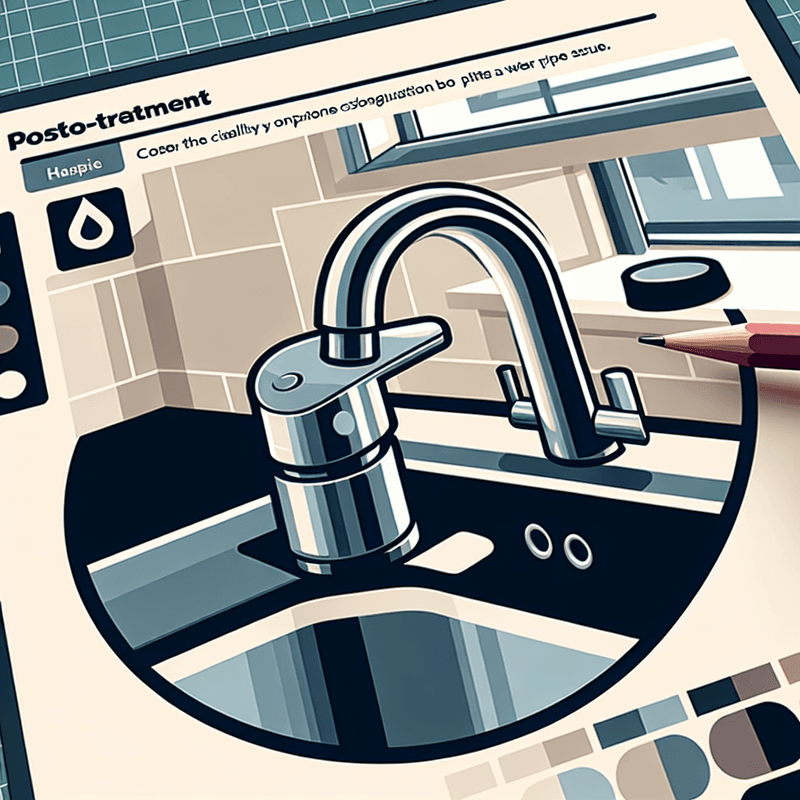Have you ever been sitting in your living room, enjoying a quiet evening, only to be startled by strange noises coming from your radiator? It's not just your old house "settling" or making random noises; these sounds from your radiator may point to specific issues in your plumbing system. From light tapping to what some describe as a water hammer, the variety of sounds can provide important clues about the health of your heating system.
Radiators are vital components of a home's heating system, especially in cooler months, but when they start making noises, it can be unnerving. Understanding what causes these noises and how to address them can save you from future headaches and costly repairs.
The Common Causes of Noisy Radiators
Air Trapped in the System
One of the most frequent causes of radiator noise is trapped air. If your radiator gurgles or makes a hissing sound, it likely indicates that air has accumulated within the radiator or piping. This air can inhibit water flow, causing irregular heating and noise.
Uneven Water Flow
Sometimes, the flow of water through the radiator system might not be smooth, leading to peculiar noises. This can be caused by sediment build-up or an improperly balanced system where some radiators heat up faster than others.
High Water Pressure
When the pressure of the water in your heating system is too high, it can result in a banging noise known as 'water hammer'. Water hammer occurs when the flow of water is stopped abruptly, causing a shockwave through the pipes.
Diagnosing and Fixing the Noise
Bleeding the Radiator
One of the easiest DIY solutions for releasing trapped air is bleeding your radiator. This process involves opening a small valve on the radiator to let out air. It’s a simple job that you can do with a radiator key or suitable flat-blade screwdriver.
Adjusting the System Pressure
Reviewing and adjusting the water pressure in your heating system can also reduce noise. The boiler or main system should have a pressure gauge, and you can consult your heating system's manual to find the optimal pressure setting. It’s important to do this carefully as too low or too high pressure can both cause system issues.
Flushing the System
A radiator that produces a rumbling due to built-up sediment might need flushing. This involves draining the water from your radiator system, usually with the addition of a chemical solution to dissolve sediment and limescale, then refilling the system with clean water.
Balancing the Radiators
If adjusting individual radiators doesn’t prevent noises, the whole system might need rebalancing. This procedure ensures that all radiators heat up efficiently and at the same pace, minimizing strain and noise.
When to Call a Professional
While there are several tasks you can undertake yourself, it is crucial to recognize when the problem is beyond DIY fixes. If noises persist after you've tried bleeding and balancing the radiators, or if you're not comfortable performing these tasks, it's prudent to call in a qualified plumbing and heating engineer. Persistent noises may indicate deeper issues like pipe blockages or a malfunctioning boiler, which require professional tools and know-how to fix safely.
Prevention Tips
Regular Maintenance
The best way to prevent future noises and other common radiator issues is regular maintenance. This includes annual servicing of your boiler and heating system by a certified professional.
Check the System Regularly
Regularly checking the pressure and inspecting your radiator for signs of rust or leakage can prevent major issues. It’s also useful to visually check if the system heats up evenly.
Install a Magnetic Boiler Filter
Installing a magnetic boiler filter can capture any rust and debris before it builds up in your radiators. This helps maintain a clear path for water and reduces the wear and tear on your system.
Conclusion
In conclusion, while a noisy radiator can be a nuisance, understanding what causes these sounds and knowing how to address them can ensure your home remains warm and serene. Regular maintenance, appropriate DIY fixes like bleeding and balancing, and knowing when to call in the professionals can save you from future worries. If your radiator does keep making noises, consider it a call to action to check on the health of your heating system—before minor issues grow into major ones.





